Python version: 2.7.10
My code:
# -*- coding: utf-8 -*-
from urllib2 import urlopen
from bs4 import BeautifulSoup
from collections import OrderedDict
import re
import string
def cleanInput(input):
input = re.sub('\n+', " ", input)
input = re.sub('\[[0-9]*\]', "", input)
input = re.sub(' +', " ", input)
# input = bytes(input, "UTF-8")
input = bytearray(input, "UTF-8")
input = input.decode("ascii", "ignore")
cleanInput = []
input = input.split(' ')
for item in input:
item = item.strip(string.punctuation)
if len(item) > 1 or (item.lower() == 'a' or item.lower() == 'i'):
cleanInput.append(item)
return cleanInput
def ngrams(input, n):
input = cleanInput(input)
output = []
for i in range(len(input)-n+1):
output.append(input[i:i+n])
return output
url = 'https://en.wikipedia.org/wiki/Python_(programming_language)'
html = urlopen(url)
bsObj = BeautifulSoup(html, 'lxml')
content = bsObj.find("div", {"id": "mw-content-text"}).get_text()
ngrams = ngrams(content, 2)
keys = range(len(ngrams))
ngramsDic = {}
for i in range(len(keys)):
ngramsDic[keys[i]] = ngrams[i]
# ngrams = OrderedDict(sorted(ngrams.items(), key=lambda t: t[1], reverse=True))
ngrams = OrderedDict(sorted(ngramsDic.items(), key=lambda t: t[1], reverse=True))
print ngrams
print "2-grams count is: " + str(len(ngrams))
I recently learning how to do web scraping by following the book Web Scraping with Python: Collecting Data from the Modern Web, while in Chapter 7 Data Normalization section I first write the code as same as the book shows and got an error from the terminal:
Traceback (most recent call last):
File "2grams.py", line 40, in <module>
ngrams = OrderedDict(sorted(ngrams.items(), key=lambda t: t[1], reverse=True))
AttributeError: 'list' object has no attribute 'items'
Therefore I've changed the code by creating a new dictionary where the entities are the lists of ngrams. But I've got a quite different result:
Question:
- If I wanna have the result as the book shows (where sorted by values and the frequency), should I write my own lines to count the occurrence of each 2-grams, or the code in the book already had that function (codes in the book were python 3 code) ? book sample code on github
- The frequency in my output was quite different with the author's, for example
[u'Software', u'Foundation']were occurred 37 times but not 40. What kinds of reasons causing that difference (could it be my code errors)?
Book screenshot:





